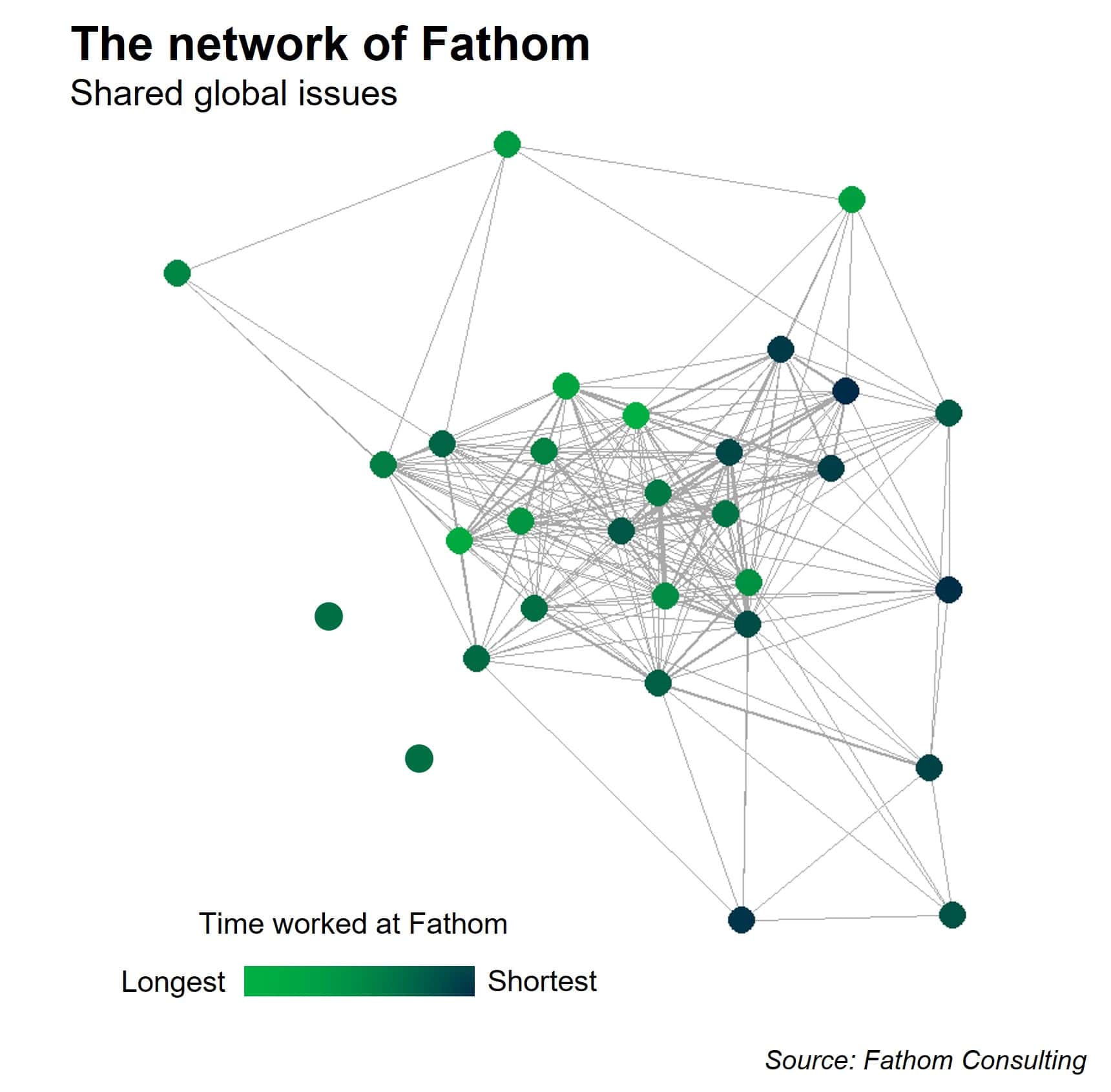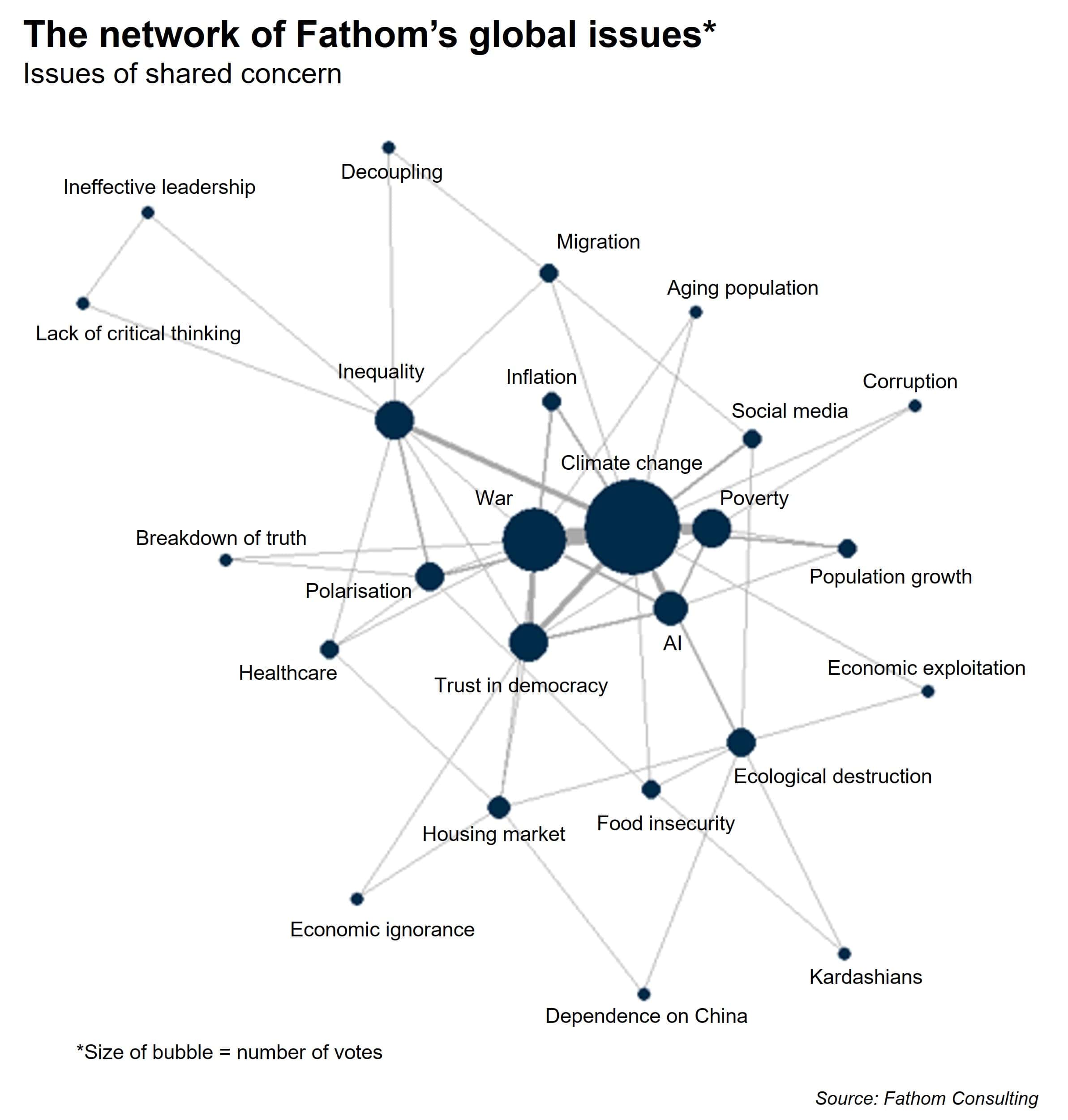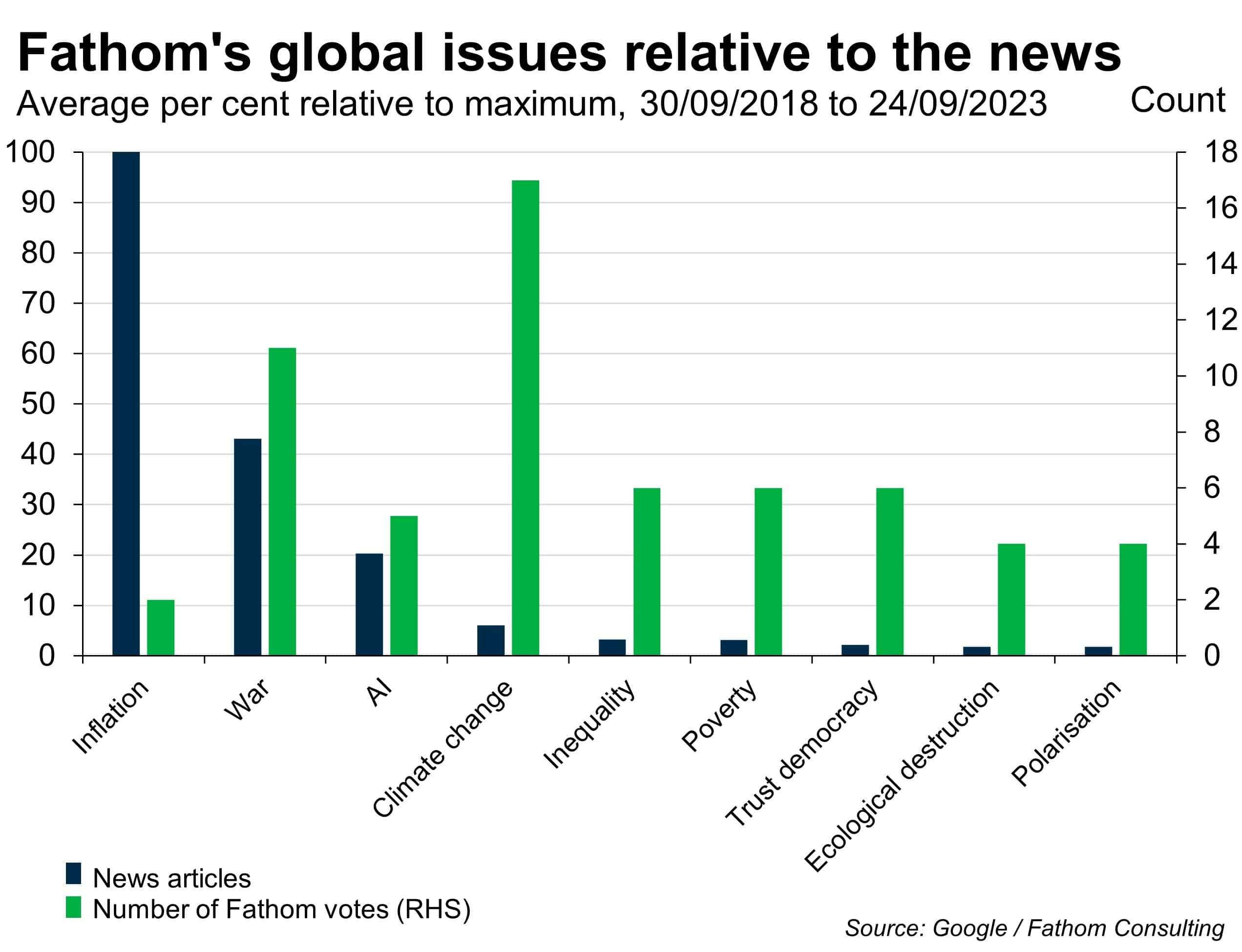A sideways look at economics
In his book Thinking, Fast and Slow, Daniel Kahneman offers several insights into human cognition. Perhaps the key theme of the book was his portrait of the two characters that reside in our minds: System 1, which is quick, instinctual and reaches conclusions fast; and System 2, more methodical, analytical and takes its time to ponder. It is possible to extend this insight to companies as well.
On a typical working week, depending on the efficiency of System 1 is what keeps a company alive as they navigate the rapid currents of day-to-day challenges. With unrelenting deadlines and finite time, it rarely feels like there is capacity to slow down and switch to System 2, lacking time to fit in the longer discussions. Discussions that generate new ideas or strategies and that thrive only when employees can take a step back from System 1. Despite these perceived constraints, it is important at times to shift gears. Counterintuitively, it is when things are accelerating fastest that slowing down is most important. Fathom spent the first half of this week away from our desks and at a company retreat doing exactly that.
The break was a deliberate pause, invoking our collective System 2 to introspect, strategize and fortify our shared vision. It was a chance for colleagues to socialise, particularly with those they don’t tend to work alongside or with. And, amidst the very competitive games of hide and seek, and tug of war, we managed to step back with a glass of wine or two and look at the bigger picture. The last year has seen a lot of growth at Fathom and, as a result, this necessitated the need to take a breath and plan, so we are best able to navigate this new chapter effectively and efficiently. One focus, from the most experienced at Fathom, has been to prevent bias that results from ‘group think’ from creeping in. This is a concern also shared by Kahneman, who frames it as social conformity and the pressure to agree.
Kahneman delves deep into the concept of social conformity, explaining how individuals, particularly within corporate settings, are often influenced by the prevailing sentiments of the group. This phenomenon, though seemingly benign, can significantly stifle innovation and independent thinking. According to Kahneman, our brain’s System 1 often leans towards harmony and avoids dissent, inadvertently leading to what many term as ‘group think’. The pressures of fitting in, coupled with the influence of more experienced and more confident voices within the team, can push individuals to align with the majority view. The 2007-2008 housing bubble was a clear example of how devasting this herd behaviour and lack of independent thinking can be.
During our retreat, we conducted an exercise that looked to test the degree of Fathom’s ‘group think’. Fathomites, our go-to team nickname, were asked to individually write down what were, in their opinion, the current top three global issues. The results were then mapped out, painting a picture of Fathom’s network of shared concerns. In the network below, each node symbolizes a Fathomite and every connecting line a shared global concern between them. The intensity of these connections signifies the number of shared issues between individuals. Finally, individuals were coloured along a gradient dependent on their time at the company, with green being the most longest serving members and red the newest.

A company that suffers from a high degree of ‘group think’ would expect to see a very tight network, with the longest serving members in the centre and with their colleagues further out the newer they are. Implying that the longer you are at the company, the more you are pushed toward the views of the most senior, which in turns becomes the centre.
Fathom’s network does reveal small clusters of the most and least experienced, but importantly the centre of the network is diverse as are the outliers. Suggesting no obvious pressure of Fathomites to conform, at least on global issues. Two colleagues are so independent in fact that they share no connections at all with the rest of the company. They proved this independent thinking particularly strongly during the lively late-night discussions on global affairs, which inevitably happen when you put several economists in a room together with a few bottles of wine.
So, what issues did unbiased Fathomites raise during the exercise? In the network below, it is the issues raised that are mapped. The more people who listed an issue the bigger its node. Connections occur when an individual listed both issues in their three global issues and the more people to do so the stronger the connection.

The biggest issue according to Fathom’s collective conscience was clearly climate change, with half of the company listing it as a top global issue. Testament, in Fathom’s eyes, to the importance of the work on climate economics. The threat of war was the next biggest issue, with Fathomites seeing war breaking out from varying sources, some more concerned with conflict between the US and China, whilst others were talking of an escalation of the war in Ukraine. Inequality, a lack of trust in democracy, poverty and the rise of AI were also high on Fathom’s radar.
There were some more unique answers as well, such as a lack of critical thinking in the population or the breakdown of truth. The most unexpected answer though was the Kardashians. Whilst I’m no fan of the Kardashians, putting them on par with climate change and war did seem a little extreme. But through discussions later the decision became more understandable. For those interested, the Fathomite in question explained their decision as more symbolic of the growing darker social trends like greed, which fuel and validate inequality, and accountability. On reflection, the impression on society from the Kardashians could even be used as a prime example of ‘group think’. A little more System 2 thinking from their fans would surely pop their bubble… right?
But how independent is our thinking to the rest of the world? First, it’s important to note that agreement is not the same as conformity. People can share an opinion without having been influenced by one another, but hearing the opinions of others does make it is more likely you will agree. Kahneman refers to this as ‘priming’, explaining that exposure to a stimulus influences our response to a subsequent stimulus. In group contexts, if everyone seems to agree on a particular point of view, hearing those views can prime an individual to adopt or at least lean towards that viewpoint, even if they initially held a different perspective. Mass media has meant been a catalyst for this effect, allowing ideas to spread across the world almost instantaneously.
Comparing the issues Fathom raised to those most common issues discussed in global news articles available on Google, we can estimate this effect on our company. The following chart looks at some of Fathom’s issues and how relatively popular they are in news stories over the past five years.

While it is important to note that the most globally pressing issues aren’t necessarily the ones we discuss most frequently, it does give an indication of their significance. Inflation might be the “trending topic” globally over the past five years, yet it didn’t rank high for Fathomites — with only two members listing it. On the other hand, climate change, which topped our charts, was equivalent to just 6% of the mentions compared to inflation in global news stories. War, a significantly more sensationalist (and hence profitable) news topic, naturally garnered more attention, being mentioned 43% as often as inflation. These distinct differences between global trends suggest efforts from Fathom management to prevent conformity with the crowd has, so far, been successful. As the company grows this will become a harder, but by no means unachievable, task.
Daniel Kahneman’s insights into System 1 and System 2 thinking are not just applicable to individual cognition but can be extended to organizational thinking. The susceptibility to ‘group think’, now even greater with the rise of AI tools like Chat GPT that summarise and re-form existing information, skews collective decision-making, introducing greater bias the longer it has to take hold. Fathom’s retreat reflects a commitment to independent thought, which thrives when we can embrace the slower, more introspective thinking. So, next time you see us with a glass in hand, we’re just pondering the world’s biggest issues, I promise!
More by this author